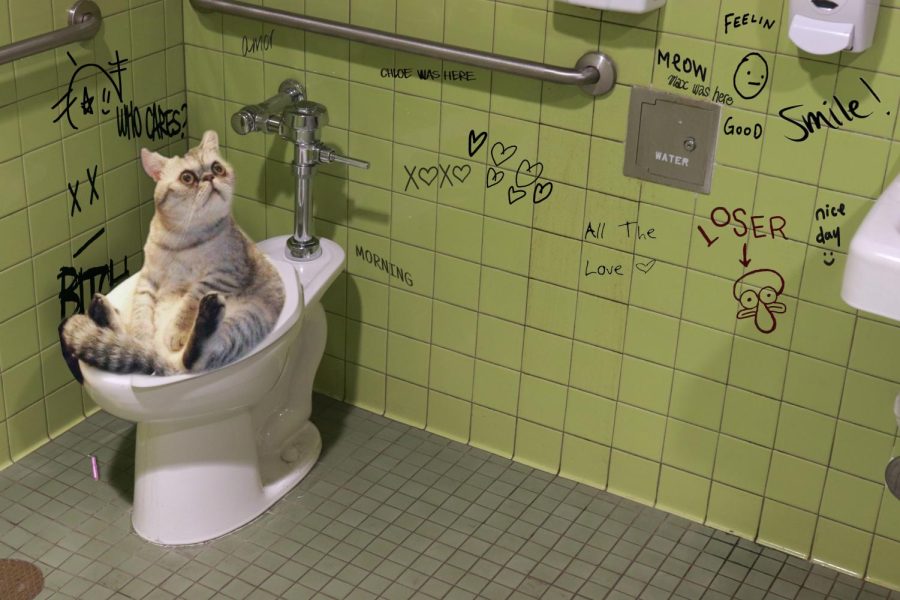The Consequences of Flushing Cat Poop Down Your Toilet - Safeguard Your Pipes
The Consequences of Flushing Cat Poop Down Your Toilet - Safeguard Your Pipes
Blog Article
Have you been on the lookout for selective information Can You Flush Cat Poop Down The Toilet??

Intro
As pet cat proprietors, it's essential to be mindful of how we dispose of our feline buddies' waste. While it may seem hassle-free to purge feline poop down the toilet, this method can have harmful repercussions for both the setting and human wellness.
Alternatives to Flushing
Fortunately, there are more secure and much more liable ways to dispose of pet cat poop. Take into consideration the adhering to alternatives:
1. Scoop and Dispose in Trash
The most common approach of getting rid of feline poop is to scoop it right into a naturally degradable bag and throw it in the trash. Be sure to use a committed trash inside story and throw away the waste immediately.
2. Usage Biodegradable Litter
Go with biodegradable feline clutter made from materials such as corn or wheat. These clutters are environmentally friendly and can be securely taken care of in the garbage.
3. Bury in the Yard
If you have a backyard, consider hiding feline waste in a designated area far from vegetable yards and water resources. Be sure to dig deep sufficient to avoid contamination of groundwater.
4. Mount a Pet Waste Disposal System
Buy an animal waste disposal system especially created for pet cat waste. These systems utilize enzymes to break down the waste, decreasing smell and environmental effect.
Wellness Risks
In addition to ecological concerns, flushing feline waste can likewise pose wellness threats to people. Feline feces might consist of Toxoplasma gondii, a bloodsucker that can trigger toxoplasmosis-- a potentially serious health problem, especially for expecting ladies and individuals with weakened immune systems.
Environmental Impact
Purging pet cat poop introduces harmful microorganisms and bloodsuckers into the water, positioning a significant risk to marine ecosystems. These impurities can negatively impact marine life and compromise water top quality.
Conclusion
Liable pet possession extends beyond offering food and sanctuary-- it likewise involves appropriate waste management. By refraining from flushing pet cat poop down the bathroom and selecting alternate disposal approaches, we can minimize our environmental impact and safeguard human wellness.
Why Can’t I Flush Cat Poop?
It Spreads a Parasite
Cats are frequently infected with a parasite called toxoplasma gondii. The parasite causes an infection called toxoplasmosis. It is usually harmless to cats. The parasite only uses cat poop as a host for its eggs. Otherwise, the cat’s immune system usually keeps the infection at low enough levels to maintain its own health. But it does not stop the develop of eggs. These eggs are tiny and surprisingly tough. They may survive for a year before they begin to grow. But that’s the problem.
Our wastewater system is not designed to deal with toxoplasmosis eggs. Instead, most eggs will flush from your toilet into sewers and wastewater management plants. After the sewage is treated for many other harmful things in it, it is typically released into local rivers, lakes, or oceans. Here, the toxoplasmosis eggs can find new hosts, including starfish, crabs, otters, and many other wildlife. For many, this is a significant risk to their health. Toxoplasmosis can also end up infecting water sources that are important for agriculture, which means our deer, pigs, and sheep can get infected too.
Is There Risk to Humans?
There can be a risk to human life from flushing cat poop down the toilet. If you do so, the parasites from your cat’s poop can end up in shellfish, game animals, or livestock. If this meat is then served raw or undercooked, the people who eat it can get sick.
In fact, according to the CDC, 40 million people in the United States are infected with toxoplasma gondii. They get it from exposure to infected seafood, or from some kind of cat poop contamination, like drinking from a stream that is contaminated or touching anything that has come into contact with cat poop. That includes just cleaning a cat litter box.
Most people who get infected with these parasites will not develop any symptoms. However, for pregnant women or for those with compromised immune systems, the parasite can cause severe health problems.
How to Handle Cat Poop
The best way to handle cat poop is actually to clean the box more often. The eggs that the parasite sheds will not become active until one to five days after the cat poops. That means that if you clean daily, you’re much less likely to come into direct contact with infectious eggs.
That said, always dispose of cat poop in the garbage and not down the toilet. Wash your hands before and after you clean the litter box, and bring the bag of poop right outside to your garbage bins.
https://trenchlesssolutionsusa.com/why-cant-i-flush-cat-poop/

As a serious reader on Can You Flush Cat Poo or Litter Down the Toilet?, I figured sharing that piece of content was a great idea. Are you aware of somebody who is sincerely interested in the topic? Please feel free to share it. I treasure reading our article about Can You Flush Cat Poo or Litter Down the Toilet?.
Book Service Now Report this page